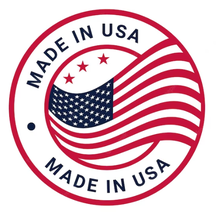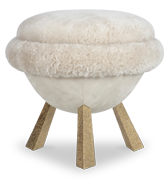
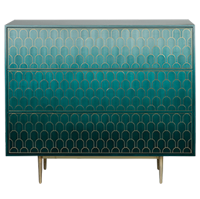

Most furniture available in the market today is not made to last. These substandard pieces are made in bulk out of cheap materials and are sold for the lowest dollar possible. As a result, consumers consider these short-term home goods completely disposable - too expensive to repair and not worth the hassle of selling - so they hit the curb.
EJ Victor furniture collections are made at our local facility in Morganton, NC. This means we decide how our excess materials are reused or recycled. We take pride in reducing the amount of waste generated by our facilities and have implemented out-of-the-box strategies to ensure all materials are used to their fullest potential in quality pieces that are built to last for generations.
The fast furniture trend has a catastrophic impact on the environment in 3 primary areas.
According to the EPA, furniture waste in America totals an astounding 12.2 million tons every year. Because most fast furniture is made of low-quality composites and hazardous glues, it is nearly impossible to separate and recycle properly, leaving over 80% of it in a landfill.
Choosing high-quality pieces that are made from sustainable resources keeps furniture out of landfills. Consumers that invest in high-quality pieces grow their heirloom collection gradually and pass them along to their children and grandchildren.
Forests are the lungs of the earth. The lush canopies of Africa and rainforests of South America and Southeast Asia are what sustain our planet and provide the essential ingredients for our ecosystem: oxygen, clean air and water, wood, homes for wildlife, and more. According to the science journal, Nature, approximately 15 billion trees are cut down each year.
With wood being one of the primary materials used in furniture manufacturing, choosing sustainably sourced furniture is critical. As a consumer, you’ll know if the company you’re purchasing from sources their wood sustainably by the Forest Stewardship Council (FSC) seal of approval, which ensures what is taken from nature is replenished for future generations.
Did you know that China utilized most of its forests for manufacturing goods in the 1990s? Because of this, U.S. demand for fast furniture is generating enormous shipping emissions as lumber is transported from Africa to China for production, and then to the U.S. for sale.
Container ships use over 110 tons of fuel oil per day and can often take more than 2 weeks to reach port. Additionally, shipping fuel still contains sulfur, which is highly polluting and estimated to account for 17% of all human-caused carbon emissions by 2050. By contrast, furniture manufactured in the US using locally harvested wood eliminates the need for overseas shipping and significantly reduces carbon emissions.
Between material waste, deforestation, and emissions from transport, on average, a single piece
of fast furniture generates up to 47kg of carbon dioxide emissions – approximately the same
amount of greenhouse gases emitted when 5.3 gallons of petrol are burned.
Our wholesale lumber partner is Associated Hardwoods Inc., locally based in Granite Falls, NC, and specializing in responsible use of forests.
Associated Hardwoods invests in state-of-the-art lumber processing equipment that maximizes yield to reduce waste while replenishing forests for new growth, resulting in 2.29 new trees for every tree harvested, along with improved processes for recycling, fuel use, and moisture control. They are verified sustainable by the AHMI (Appalachian Hardwoods Manufacturing Industry), and certified with the Sustainable Forestry Initiative, Forest Stewardship Council, PEFC, and the US Forest Service.
Learn More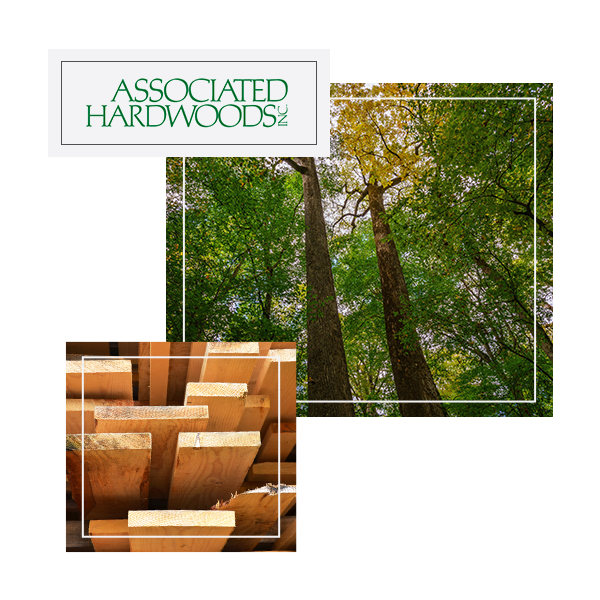
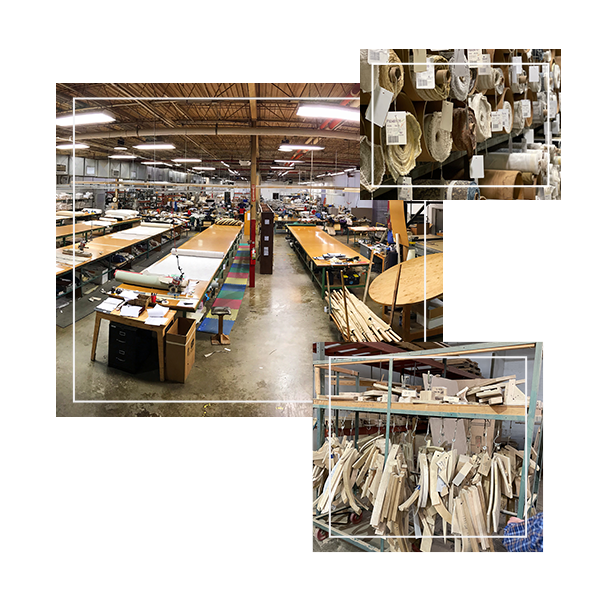
We reduce our carbon footprint by minimizing overseas shipping. Almost all our furniture is locally manufactured in Morganton, NC, and we strive to use US-made materials in our manufacturing facilities, which reduces our carbon footprint and cuts down on lead times for you.
EJV Lead Times:
Average Industry Lead Times:
Our wholesale lumber partner is Associated Hardwoods Inc., locally based in Granite Falls, NC, and specializing in responsible use of forests.
We build our shipping cartons on-site to ensure we use the most efficient amount of packaging which helps us avoid excess cardboard waste. The cardboard waste we do generate is recycled at a local facility.
For every ton of paper products recycled, such as cardboard, we can save 17 trees, 380 gallons of oil, 3 cubic yards of landfill space, 4,000 kilowatts of energy, and 7,000 gallons of water!


